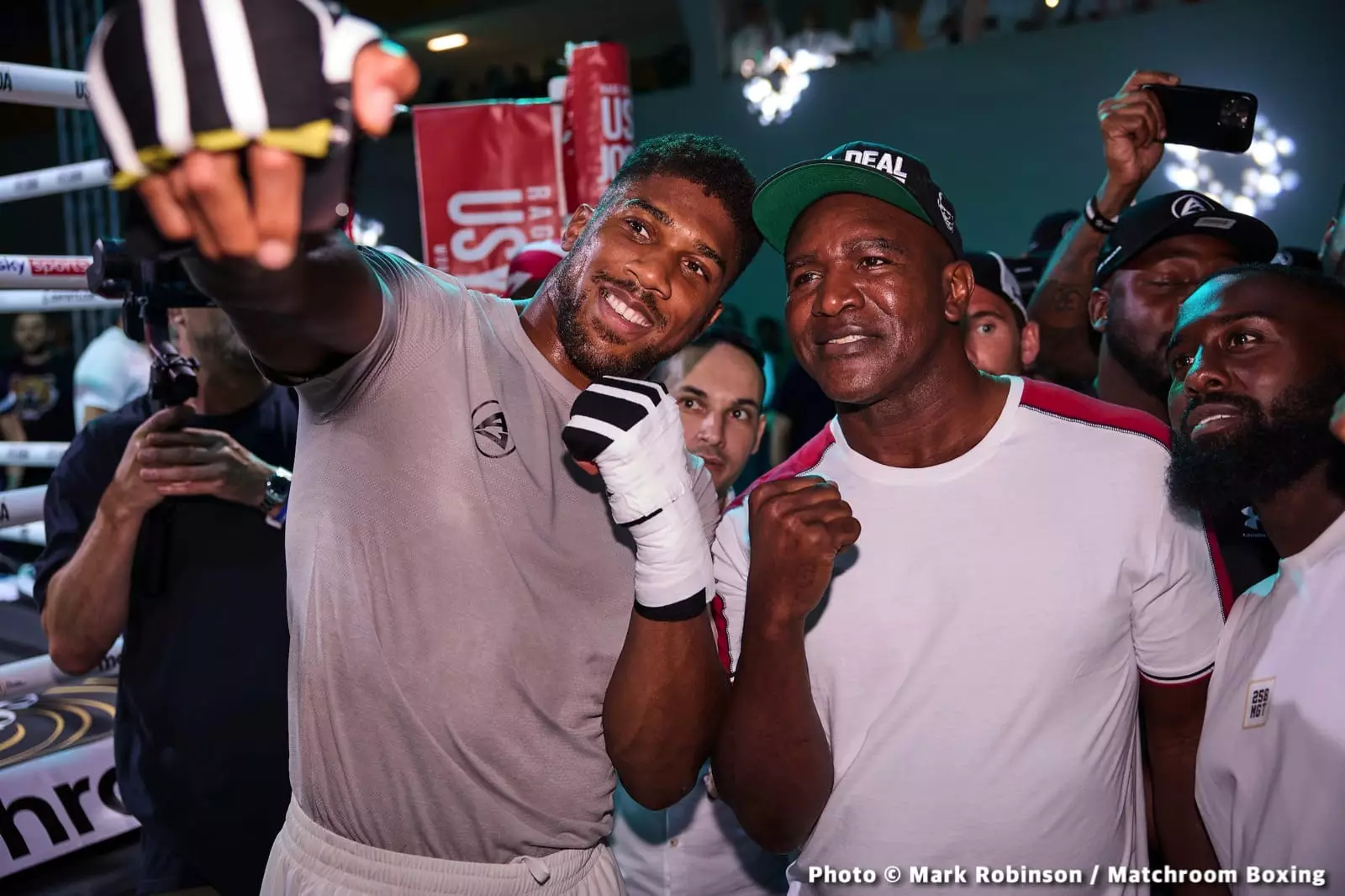Evander Holyfield, a name synonymous with tenacity in the boxing ring, has often found himself in the shadow of Muhammad Ali when discussions about the greatest heavyweight champion arise. During the recent Ring Magazine Awards ceremony in London, Holyfield took the opportunity to articulate his perspective on his formidable legacy as a four-time heavyweight champion. His remarks highlight a broader debate over what constitutes greatness in boxing: is it the number of titles held, the quality of opponents faced, or the impact on the sport?
A Case for Holyfield’s Greatness
Holyfield’s assertion that he deserves recognition as the greatest heavyweight champion stems from the unique milestone he achieved by becoming the first boxer to win the heavyweight title four times. This accomplishment alone is a testament to his skill, determination, and resiliency in a sport that often favors brute strength over technical prowess. In a landscape filled with towering giants, Holyfield’s ability to consistently triumph over physically imposing opponents, such as Buster Douglas and George Foreman, is nothing short of remarkable.
Holyfield’s tenure spanned an era when multiple heavyweight titles were in play; thus, he faced the challenge of balancing the pursuit of different championships. While he expressed frustration over being eclipsed by Ali’s legacy, his achievements cannot be dismissed lightly. There is an elegance in the way Holyfield competes, often navigating the ring with strategic finesse and a fierce competitive spirit, hallmarks of his illustrious career.
Yet, the question remains: how do we measure greatness? Holyfield’s argument rests heavily on his statistics and accolades. However, the most compelling debates in boxing history hinge on the caliber of opponents a champion faces and defeats. Ali’s resume is adorned with victories over an elite cadre of opponents, including Sonny Liston, Joe Frazier, and George Foreman during their prime years. In contrast, while Holyfield also boasts a list of formidable foes, the heavyweight landscape during his career was characterized by fragmentation. The presence of multiple titleholders diluted the significance of each victory compared to Ali’s unified reign.
The art of boxing is steeped in narratives, and much of Ali’s legacy is built upon his battles against not only skilled opponents but also sociopolitical obstacles. His fights transcended sport—he became a symbol of resilience, challenging societal norms, which paved the way for future athletes. Holyfield undeniably contributed to the sport and pushed the envelope for what it means to be a champion, but the layers of narrative woven into Ali’s career offer an unparalleled depth that is often hard to surpass.
While Holyfield rightly evokes pride in his four-title reign, the complexity of accolades in boxing presents dilemmas regarding status and recognition. To some, the mantra “it’s who you beat, not how many belts you hold” resonates deeply. If we were to apply this philosophy strictly, fighters like Floyd Mayweather and Canelo Alvarez, both of whom have amassed an astonishing number of titles, could stake their claim as the greatest based solely on numbers. However, the debate steers off course when it veers into numbers; boxing enthusiasts often articulate a preference for legacy over trivial titles.
The history of boxing illuminates how fanfare and media scrutiny can overshadow merit. Holyfield’s call for recognition at the Ring Magazine Awards is an embodiment of his yearning for acknowledgment—an acknowledgement that may not come as quickly as he wishes. He has fought valiantly, but history often prioritizes figures that resonate on levels beyond statistics.
A Continuing Conversation
Ultimately, the discussions surrounding Evander Holyfield’s legacy compared to Muhammad Ali’s bring to light an essential reflection of what it means to be “the greatest.” Both fighters exemplify extraordinary skills, and their contributions to boxing have carved lasting impressions in sports history. Holyfield’s passionate declaration of his accomplishments contributes to an ongoing narrative, one rich with rivalry and recognition in boxing.
The backdrop of this debate serves to elevate not just Holyfield’s legacy but also the sport of boxing as a whole. As long as there are voices craving acknowledgment and champions breaking barriers, the conversation surrounding greatness within boxing remains vibrant and contested.


Leave a Reply